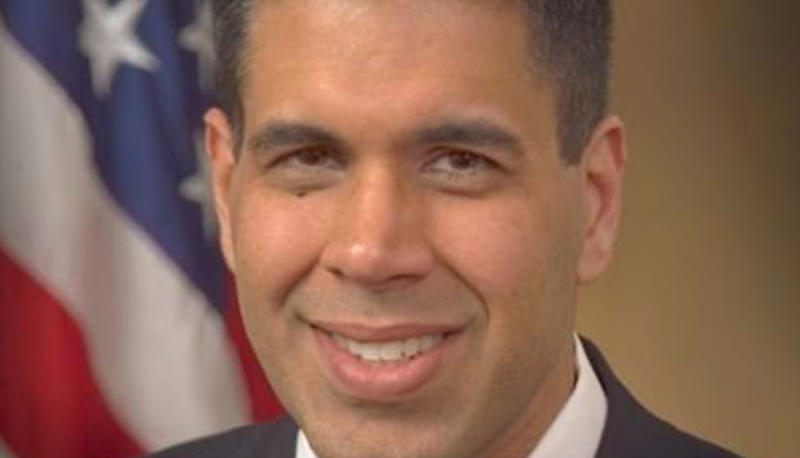“Confirmed Judges, Confirmed Fears” is a blog series documenting the harmful impact of President Trump’s judges on Americans’ rights and liberties. Cases in the series can be found by issue and by judge at this link.
Votes from Sixth Circuit judges Amul Thapar and John Bush continued Trump appointees’ trend to weaponize the COVID-19 pandemic to let states ban abortion. Thapar dissented from an April decision that affirmed a preliminary injunction allowing abortions to continue in Tennessee despite the state’s prohibition in Adams & Boyle, P.C. v. Slatery, while Bush suggested that a district court give deference to Ohio’s arguments for such a ban in Pre-Term Cleveland v. Attorney General.
In Tennessee, Republican Gov. Bill Lee issued an order in early April to ban surgical abortions as a “non-essential” surgical procedure for most of April. A district court had granted a preliminary injunction allowing surgical abortions to continue, and two judges on the Sixth Circuit Court of Appeals, Karen Nelson Moore and George W. Bush-nominated Helene White, affirmed the injunction, with limitations.
Specifically, the Sixth Circuit majority explained that the reproductive health clinics that brought the suit were likely to succeed because choice is a clear constitutional right, and the harm that the order would cause to those rights, precluding some from getting abortions “at all” and forcing some individuals to undergo more “invasive” procedures if abortion was postponed pursuant to the state’s order. The majority also noted that there would be “minimal” use of personal protective equipment (PPE) at clinics. The court did, however, limit the injunction, ordering that it be tailored specifically to individual patients where it could be demonstrated that delay would cause the harms discussed by the district court.
Judge Thapar dissented, however, just as he had dissented from an earlier order refusing to grant a stay of the injunction. He argued that courts often agree to procedures that may delay abortions, such as parental notification or consent requirements, and that the court should defer to the state’s judgment about serious health consequences that the injunction could cause, claiming that medical personnel “will die” as a result.
The majority firmly rejected Thapar’ assertions. Delays due to parental consent requirements, the majority noted, are “outside” a state’s control, and precedent upholding such laws “in no way suggests” that the Supreme Court would approve a “state-mandated” delay as in this case. The basis for Thapar’s dire predictions, the majority went on, was “nothing more than the State’s say-so.” There was no “expert or medical evidence” backing up the state’s claims, the majority pointed out, and in fact, “every serious medical or public health organization” to have considered the issue has “said the opposite.” The pandemic has not “demoted Roe and Casey to second-class rights,” the majority elaborated, and Thapar’s position was not appropriate “deference” to the state’s view, but instead improper “abdication.” Fortunately, Thapar’s position did not prevail.
In Ohio, the state had similarly banned elective surgical procedures using PPEs, and had directed abortion clinics specifically that its order prohibited surgical abortions. At the request of several reproductive health care clinics, a district court had granted a temporary restraining order (TRO) stating that the ban would not apply when, on a case-by-case basis, it could be shown that delay would be further harmful. The state sought to appeal the TRO, and all three judges who considered the appeal rejected it on April 6. The majority explained that it properly did not have jurisdiction, because there would soon be a more extensive hearing at the district court on a preliminary injunction, and the limited nature of the TRO did not threaten “irretrievable harms.”
Bush dissented in part. He thought that the court did have jurisdiction to hear the appeal, but that the state had not yet shown such “irretrievable” harm. He strongly suggested that the district court should “promptly” consider those and other arguments in deciding a preliminary injunction, including “the State’s concerns about the need” for the ban and the principle that “the onus” is on the clinics to make a “clear showing” that the state’s order “violates the Constitution.” In fact, the district court promptly considered evidence from both sides and did issue an order on April 23 that again blocked the ban on abortions on a case-by-case basis.
As discussed earlier in this blog, Trump judges on the Fifth and Eighth Circuits have cast deciding votes to temporarily uphold opportunistic bans on abortion during the pandemic. Although not as successful because of the votes of other judges upholding reproductive rights, judges Thapar and Bush have tried to do the same in Tennessee and Ohio.

